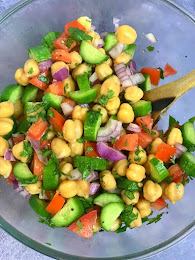Dr Anbarasu's Dairy - Heart Healthy Diet
Heart Healthy Diet
1. Carbohydrates
A vital source of energy, carbohydrates comprises about 60% of an individual’s diet. Most of your energy needs are met from carbohydrates. Choose wisely from complex carbohydrate sources such as whole grains-wheat, millets, brown rice etc.
2. Protein
Protein is needed to assist your body to repair cells and make new ones. It is also essential for growth and development during the various stages of life. About 25% of daily calories should come from protein found in pulses like- moong dal, urad dhal and legumes like-kidney beans (rajma), black-eyed beans (lobia), and chickpeas (channa). Milk and milk products like -paneer, curd, and yoghurt are also a great source of protein. For the non-vegetarians, good sources include eggs, fish and lean meat.
3. Fats
Fats contribute to about 15% of daily caloric needs and are a major energy source. They are also vital for storing and providing vitamins and synthesize hormones. Some of the good sources of fats for one’s daily diet can come from polyunsaturated fats such as flax seeds, sunflower seed etc., monounsaturated fats such as olive oil, sesame oil etc., and saturated fats such as butter, and ghee – however, remember to use these in moderation.
4. Vitamins and Minerals
Micronutrients - vitamins and minerals support metabolism, nerve and muscle function, bone maintenance and cell production. Fruits and vegetables are the major sources of vitamins and minerals including potassium, iron, folate, vitamin A and vitamin C.
5. Water
Life without water is unimaginable. A major nutritional component that helps regulate body temperature, lubricate your joints and protects your major organs, and tissues. Water also aids to transport oxygen throughout your body. Make sure that you drink at least 8 glasses of water every day.
Steps for A Healthier You:
1. Make half your grains whole and complex.
2. Include healthy proteins-milk and milk products, pulses and lean meats.
3. Eat more colourful vegetables and fruits.
4. Limit the intake of processed foods and cut down extra salt and sugar.
5. Eat intelligently, watch what you eat.
6. Fix times to have meals and stick to it.
7. More important eat only when you feel hungry.
A balanced diet supplies the human body with essential nutrients that your body needs to work effectively. If you are having an unbalanced diet, the system is prone to disease, infection, fatigue, and poor performance. Children who are deprived of healthy foods may face growth and developmental issues, poor academic performance and highly prone to persistent infections.
For further information :
Dr Anbarasu Mohanraj,
anbarasu.mohanraj@gmail.com
dranbarasumohanraj.com






Comments
Post a Comment